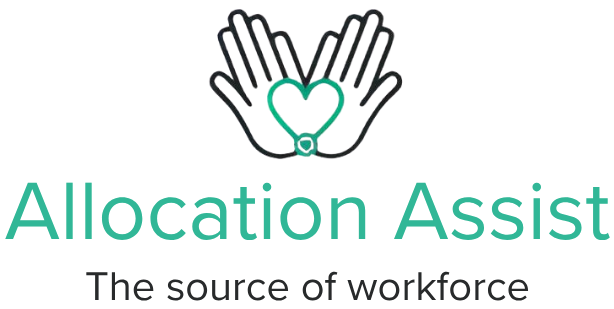Working as a psychiatrist in Dubai offers you substantial earning potential, with salaries averaging AED 38,294 monthly and top performers reaching AED 977k yearly. You’ll need DHA licensing, verified through DataFlow Group, and strong cultural competence to serve a diverse patient population. The role includes 30+ days of paid vacation, opportunities for professional growth, and wide-ranging benefits. Maneuvering cultural norms, religious beliefs, and multilingual patient care makes this career path both challenging and rewarding, there’s much more to discover about this unique practice environment.
Competitive Salary Packages in Dubai’s Mental Health Sector

Just how lucrative is Dubai’s mental health sector? As a psychiatrist in Dubai, you’ll find highly competitive compensation packages, with average monthly salaries reaching AED 38,294 and annual base earnings of AED 476,440. Salary benchmarking reveals significant growth potential based on your experience level and specialization. Medical professionals enjoy paid vacation with a minimum of 30 days annually plus public holidays.
You can expect your earnings to progress substantially throughout your career. Early-career psychiatrists start at around AED 201,980 annually, while those with 5-9 years of experience command approximately AED 400,000. During compensation negotiations, you’ll discover additional benefits, including housing allowances, health insurance, and annual airfare stipends. Dubai’s mental health sector offers tax-free income that often surpasses Western markets when adjusted for cost of living, particularly in prestigious hospitals and affluent districts. Top-performing psychiatrists can earn up to AED 977k yearly with the right combination of experience and expertise.
Essential Licensing Requirements for Foreign Psychiatrists
You’ll need to start your DHA license verification process by submitting your complete documentation package through their online portal for Primary Source Verification. For foreign psychiatrists, the process includes verification of fluency in English, with standardized test scores from TOEFL or IELTS often required. Required documentation includes a recent photograph and valid passport copy for identity verification. The process typically takes two months to one year to complete depending on your documentation and assessment results. Once approved, your initial DHA medical license will typically remain valid for one year, requiring annual renewal to maintain your practice privileges in Dubai. Your renewal application should begin at least 30 days before expiration and must include proof of continuing medical education hours, updated good standing certificates, and verification of active clinical practice.
DHA Verification Process
When pursuing a career as a psychiatrist in Dubai, obtaining a DHA (Dubai Health Authority) license stands as the cornerstone requirement for legal practice. The verification process, managed by DataFlow Group, guarantees the authenticity of your credentials through Primary Source Verification (PSV). To enhance quality assurance, the DHA has been collaborating with DataFlow since 2007.
The rigorous verification process helps maintain international standards and ensures only qualified practitioners enter the healthcare system. The verification fees for specialist doctors like psychiatrists typically range from $300-$350.
Key steps in the DHA verification process include:
- Create your account on the Sheryan portal and upload clear scans of all required documentation, including educational certificates and professional licenses
- Submit for DataFlow PSV, which typically takes 30-45 working days for thorough authentication of your credentials
- Track your application status in real-time through either DataFlow’s or Sheryan’s portal while awaiting verification completion
Remember to ensure all documents are accurately translated if not in English or Arabic, as discrepancies can lead to application rejection.
License Duration and Renewal
After securing your DHA verification, understanding the license duration and renewal requirements becomes your next priority. Your initial DHA license remains valid for one year, with options for extended validity periods of up to three years during renewals if you’re a full-time practitioner. The process requires regular DHA audits to verify the authenticity of your credentials. All psychiatrists must complete 40 CME hours annually to maintain their license validity.
You’ll need to initiate your renewal through the Sheryan portal within 90 days before expiration, submitting essential documents including your passport, Good Standing Certificate, and PSV credentials. The renewal fee of AED 200 applies for all physicians. Don’t forget to maintain your CME credits and malpractice insurance. For delayed renewals, you’ll face penalties of AED 600 monthly for up to six months, after which your license faces cancellation. If you’re over 65, you’ll also need to submit a medical fitness report during renewal. Remember, practicing without an active license is illegal and carries severe consequences.
Cultural Competence and Patient Diversity

As a psychiatrist in Dubai, you’ll treat an extraordinarily diverse patient population where over 70% are non-UAE nationals, requiring deep cultural awareness and adaptability in your practice. You’ll need to navigate various religious beliefs, cultural norms, and linguistic challenges while maintaining sensitivity to how different communities perceive mental health care. Recent data shows that UAE nationals represent only about 25% of psychiatric hospital admissions, reflecting the emirate’s multicultural healthcare landscape. Studies indicate that only 19% of individuals with depressive disorders are properly diagnosed, highlighting the critical need for culturally-informed screening approaches. Your success will depend on developing strong cross-cultural communication skills and understanding how cultural backgrounds influence symptom presentation, treatment preferences, and therapeutic relationships.
Patient Demographics and Expectations
The diverse patient population in Dubai’s psychiatric care system brings together a unique tapestry of cultures, with expatriates making up nearly three-quarters of all admissions. You’ll encounter patients from various backgrounds, including Asians, Arabs, Africans, and Europeans, each bringing distinct cultural perspectives and expectations to their care. Language barriers and the need for stigma reduction are central challenges you’ll need to address. Many patients will initially seek help from traditional healers before coming to psychiatric professionals, which requires sensitivity and understanding of local customs.
Key demographics you’ll work with include:
- A predominantly male patient base (61.4%), with an average age in the mid-30s
- A significant portion of unemployed patients (43.9%), representing diverse socioeconomic backgrounds
- A mix of highly educated professionals and laborers, with varying levels of mental health literacy
Understanding these demographics will help you provide culturally appropriate care while addressing the unique needs of Dubai’s multicultural psychiatric patient population.
Religious and Social Norms
Practicing psychiatry in Dubai requires deep cultural competence and understanding of diverse religious beliefs, particularly Islam’s central role in shaping mental health perspectives. You’ll need to respect prayer times, fasting periods, and religious holidays when scheduling appointments and developing treatment plans.
Understanding gender norms and community perceptions is vital, as they significantly influence how patients access and engage with mental health services. You’ll often work with families rather than individuals alone, as collective decision-making is deeply embedded in local culture. The Health Regulation Department oversees all psychiatric practice standards to ensure culturally appropriate care delivery. Be prepared to address supernatural explanations for mental illness, including beliefs in possession or the evil eye.
Remember that religious and cultural beliefs may affect patients’ acceptance of diagnoses and treatment preferences. Many may seek traditional healers before psychiatric care, requiring you to develop culturally-sensitive approaches to building trust and therapeutic relationships.
Cross-Cultural Communication Skills
Working effectively in Dubai’s psychiatric field demands exceptional cross-cultural communication skills, given the emirate’s uniquely diverse patient population. You’ll need to develop strong empathy-building techniques while maintaining cultural sensitivity across different age groups, nationalities, and belief systems.
With a patient demographic comprising 71.1% Arabs, understanding cultural nuances is especially critical for effective psychiatric care.
Key practices for successful cross-cultural communication:
- Recognize that patients may express symptoms differently based on their cultural background and language abilities, watch for veiled expressions of distress, especially when they’re not speaking their native language
- Adapt your interview style and diagnostic approach to accommodate various cultural perspectives, including spiritual and holistic viewpoints
- Use culturally validated assessment tools when possible, and be cautious with direct translations of Western psychiatric concepts that might not resonate with UAE patients
Remember that miscommunication risks increase with non-native speakers, particularly when discussing emotional states.
Work Environment and Practice Settings

Dubai’s psychiatric practice settings offer diverse opportunities across public hospitals, private clinics, and specialized mental health centers. You’ll work alongside multidisciplinary teams featuring psychologists, social workers, and nurses, engaging in robust interprofessional collaboration to deliver thorough patient care.
The facilities you’ll encounter typically match international standards, particularly in private sector and leading government hospitals. Quality assurance programs guarantee consistent service delivery and adherence to best practices. You’ll primarily focus on outpatient services, though some roles involve inpatient care and community-based psychiatry. As a consultant psychiatrist, you may work independently or lead teams in complex cases. The infrastructure supports both traditional clinical practice and emerging ambulatory psychiatric services, allowing you to provide care across various therapeutic settings.
Career Growth and Advancement Opportunities
The psychiatric field in Dubai offers compelling paths for professional advancement and career development. As a psychiatrist, you’ll find leadership opportunities through consultant positions, academic roles, and private practice ventures. The city’s dynamic healthcare sector supports international collaborations and specialized training to enhance your expertise.
- You can progress to consultant roles, where you’ll lead multidisciplinary teams, supervise residents, and manage complex cases in prestigious healthcare institutions
- You’ll have opportunities to subspecialize in high-demand areas like child psychiatry, addiction treatment, or geriatric care, making you more competitive for top positions
- You can establish your own private practice after meeting regulatory requirements, or pursue academic positions where you’ll contribute to research and medical education
These pathways allow you to shape your career while contributing to Dubai’s evolving mental healthcare landscape.
Tax Benefits and Lifestyle Perks
While many global destinations offer competitive medical salaries, Dubai stands out with its exceptional tax benefits and lifestyle advantages for psychiatry professionals. You’ll retain your entire salary without personal income tax deductions, resulting in 35-45% higher take-home pay compared to Western countries. This tax-free environment greatly enhances your fiscal stability and retirement planning potential.
| Benefit Category | UAE Advantage | Impact |
|---|---|---|
| Income Tax | 0% Personal Tax | Maximum Salary Retention |
| Healthcare Coverage | Employer-Provided | Cost Savings |
| Golden Visa | 10-Year Renewable | Long-term Security |
Beyond financial perks, you’ll enjoy Dubai’s cosmopolitan lifestyle with world-class infrastructure, international schools, and year-round sunshine. The mandatory employer benefits include extensive health insurance, paid annual leave, and end-of-service gratuity, further strengthening your long-term financial security.
Professional Networking and Continuous Education
Professional networking and continuous education take center stage in Dubai’s psychiatric community through an extensive calendar of international conferences, workshops, and CME-accredited events. You’ll engage with diverse healthcare partnerships spanning MENA, Europe, and beyond, while fulfilling your professional development requirements.
Dubai’s psychiatric sector offers world-class networking and education through global conferences, fostering professional growth and cross-cultural medical partnerships.
Through interdisciplinary collaboration, you’ll connect with psychiatrists, psychologists, neuroscientists, and researchers, enhancing your expertise and career prospects.
- Attend annual conferences featuring CME-accredited sessions, hands-on workshops, and symposiums vital for license renewal
- Present your research through oral presentations and posters, gaining valuable feedback from international experts
- Participate in structured networking sessions and exhibition areas to forge meaningful professional relationships and stay updated on psychiatric innovations
These opportunities guarantee you’ll maintain cutting-edge knowledge while building a robust professional network in Dubai’s healthcare sector.
Navigating the Dubai Healthcare System
As a psychiatry doctor in Dubai, you’ll need to understand the dual structure of healthcare delivery through both public facilities (overseen by DHA) and private institutions (including Dubai Healthcare City). You’ll find that public hospitals primarily serve Emirati citizens, while private facilities tend to attract expatriate patients due to shorter wait times and English-speaking staff. Working within either system requires compliance with DHA regulations and MOHAP credentialing, though private practice offers more flexibility with regards to patient demographics and service delivery models.
Private Vs Public Care
Dubai’s healthcare system presents distinct options through its public and private psychiatric care sectors, each offering unique advantages and considerations for practitioners. The service quality and accessibility vary markedly between these sectors, with public facilities focusing on essential psychiatric care while private institutions offer more specialized services.
- Private sector positions typically provide more flexibility in treatment approaches, modern facilities, and opportunities to work with internationally trained colleagues, though you’ll need to navigate various insurance systems and fee structures.
- Public sector roles offer exposure to diverse cases and the opportunity to serve UAE nationals, but you may face higher patient volumes and resource constraints.
- While both sectors require DHA licensing, private practice often allows for more specialized focus areas and patient selection, whereas public service emphasizes broader psychiatric care delivery.
Healthcare Authority Structure
Understanding the healthcare authority structure in Dubai helps you navigate the complexities of psychiatric practice effectively. The Dubai Health Authority (DHA) provides thorough regulatory oversight for all healthcare facilities and professionals, guaranteeing both public and private sectors maintain international standards.
You’ll work within a unified system where the DHA manages licensing, compliance, and operational protocols through their Sheryan Portal. This streamlined digital platform handles your professional credentials and tracks application status efficiently. For those interested in practicing in Dubai Healthcare City, you’ll need to comply with additional DHCA regulations specific to this medical free zone.
The system emphasizes public-private collaboration, integrating advanced digital health infrastructure like NABIDH and Riayati platforms to support your psychiatric practice and ensure seamless patient care delivery.
Work-Life Balance and Family Benefits
While pursuing a career as a psychiatry doctor in Dubai offers unique opportunities, maintaining a healthy work-life balance presents significant challenges. The workplace culture and institutional initiatives are evolving to support medical professionals, with many facilities implementing wellness programs and counseling services.
You’ll find several key aspects that can impact your work-life balance:
- Extended Arab family structures provide pivotal emotional and psychological support, helping you manage professional stress and maintain stability
- Healthcare institutions offer family-friendly policies, including flexible scheduling and parental leave options, though implementation varies by facility
- Professional support networks, including mentorship programs and peer groups, help you build resilience and develop essential coping strategies
Understanding these dynamics will help you navigate your career while maintaining personal well-being in Dubai’s healthcare system.
Building a Successful Practice in Dubai
Building a thriving psychiatric practice in Dubai requires careful navigation of regulatory frameworks, cultural nuances, and market dynamics. You’ll need to obtain proper licensing through DHA, DHCR, or MOH, and guarantee your credentials meet strict verification requirements through Dataflow and Prometric exams.
To establish your practice, you’ll face staff recruitment challenges while adhering to facility standards and documentation requirements. Focus on revenue diversification by joining insurance networks and developing specialty services. Consider establishing your practice in expat-heavy medical hubs to tap into the international patient base. You can boost your success by participating in professional networks, maintaining CME requirements, and building strong referral relationships. Remember to invest in patient engagement technology and implement robust compliance measures to safeguard long-term sustainability.
Frequently Asked Questions
How Do Psychiatrists Handle Emergency Mental Health Situations in Dubai?
When managing patient safety in Dubai’s psychiatric emergencies, you’ll work at 24/7 units like Rashid Hospital or Al Amal, coordinating emergency response with specialized nurses and multidisciplinary teams. You’ll conduct immediate triage assessments and can authorize compulsory detention for up to 24 hours if needed. You must provide stabilization regardless of insurance status and can initiate involuntary treatment when documented risks exist, following Federal Law No. (10) protocols.
What Is the Typical Waiting Time for Patients Seeking Psychiatric Care?
You’ll typically face different waiting times depending on where you seek care. In government hospitals, you can expect extended waiting periods of 2+ weeks for psychiatric appointments. However, specialized clinics in the private sector often provide faster access, with wait times between 1-7 days. If you’re using telemedicine services, you’ll get even quicker access. For emergencies, you won’t experience delays as these cases receive immediate priority treatment.
Are Telepsychiatry Services Permitted for Practicing Psychiatrists in Dubai?
Yes, you can provide telepsychiatry services in Dubai, but you’ll need to meet specific requirements. You must obtain proper DHA licensing and guarantee your remote consultation availability aligns with Dubai’s telemedicine regulations. You’ll need to conduct services from DHA-licensed facilities, use approved platforms, and maintain UAE-based data storage. Remember, you can only deliver services in Arabic or English, and you’ll need explicit patient consent before each virtual session.
Which Areas in Dubai Have the Highest Demand for Psychiatric Services?
You’ll find the highest demand for psychiatric services in Dubai’s affluent residential communities and corporate business districts. Downtown Dubai, DIFC, and Business Bay show particularly strong needs due to high-stress corporate environments. Areas like Jumeirah, Palm Jumeirah, and Emirates Hills also demonstrate significant demand among wealthy residents. These zones attract international professionals who actively seek mental health support and have better access to private psychiatric care.
How Do Local Insurance Policies Cover Psychiatric Treatments and Medications?
You’ll find that UAE insurance policies generally cover psychiatric treatments with varying limitations. Most plans include consultations, therapy sessions, and medications, with annual coverage ranging from AED 1,500 to AED 30,000. You’ll need to verify specific pre-authorization requirements and coverage limits, as psychiatric medication affordability depends on your plan’s tier. Insurance providers like Sukoon, Daman, and ADNIC offer different coverage levels, with some requiring co-payments of up to 30%.








